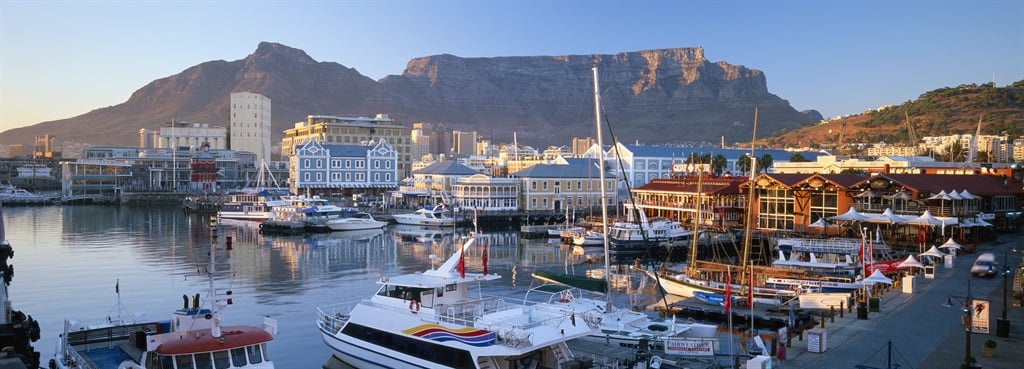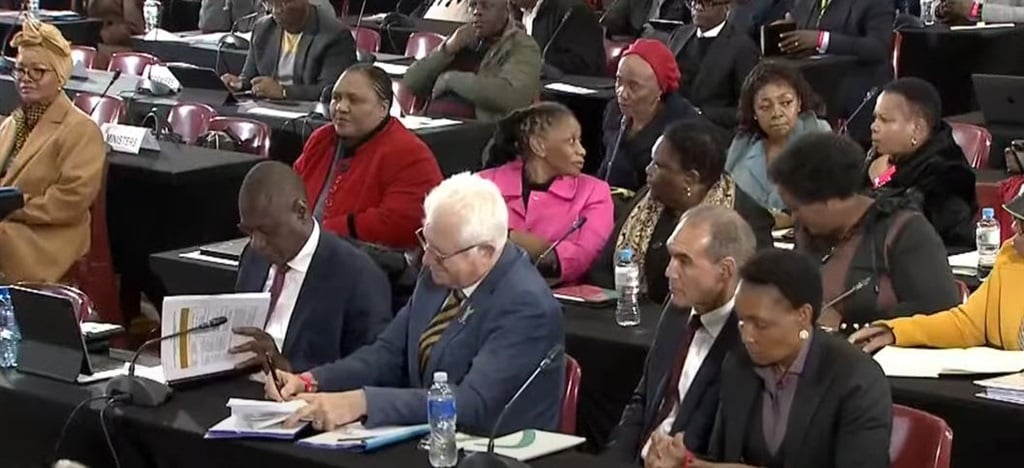
Geordin Hill-Lewis gives five differentiators which he believes is why Cape Town is outperforming other cities.
This year, South Africa celebrates its 30th anniversary of the end of apartheid and the transition to democracy in 1994. And we celebrate this in the best and most appropriate style – by holding a democratic election.
I was just seven years old when our country had its first real democratic election. Too young to fully grasp the importance of the event, but aware enough to know that it was a big moment.
One of my earliest conscious memories is watching Nelson Mandela’s inauguration on TV.
Now, this will be our seventh democratic election, and it will be by far the most significant and seminal election since our first.
As a young political organiser, on campus and in the streets, there was never any question about who would win the national elections. But, for the first time now, the result is not certain ahead of time, and there is at least a prospect that there will be a change in national government.
READ | Mbhazima Shilowa: Skip to the end of your SONA, Mr President . We’ve heard it all before…
In reflecting on our 30th anniversary of democracy, there is, of course, much to praise.
South Africa is an indescribably better place than it was under apartheid. The fact that tens of millions of citizens, who would not have been allowed to be called citizens in the past, will vote this year says it all.
But, for as long as the nearly 11 million unemployed people in our country feel that there is little prospect of a better future for them, South Africa cannot possibly claim that we have made the best use of these three decades.
So long as poverty deepens, so too will South Africa’s politics fray. Voters will be pushed to the fringes, where pedlars of the politics of division and hate lie waiting, biding their time.
For us, true believers in the precepts of liberal democracy and its power to generate human progress at scale, the soil is getting more rocky.
That is the scale of our challenge, and I feel it very personally.
There is an alternative path
I believe deeply that it is at the intersection of politics and economics that you can achieve real social progress, which is why I enjoy my job so much.
Our mission in Cape Town is to offer a living demonstration that forwards progress towards the promise of 1994 is still possible in South Africa. I am incredibly proud to represent a city that is showing this vision is still possible.
Cape Town may be a global tourist destination and regional economic powerhouse, but I think the city’s biggest achievement lies in showing there is an alternative path available for South Africa.
Rather than stagger from crisis to crisis, Cape Town is gearing itself for the future.
I want to share with you five differentiators to our approach to governance, which, read together, explain why Cape Town is outperforming other cities.
I consider these universal truths, and I have no doubt that their application elsewhere would deliver the same improved results.
The first lesson would be that you must have a clear and bold sense of national ambition, something that you are unambiguously aiming for.
Perhaps the lesson is best illustrated with a question: “What is South Africa aiming for today?”
None of us can compellingly answer that question, and certainly no one in the national government can. Instead, there is a growing belief that the failure of the state is inevitable.
In Cape Town, we refuse to believe that. We want to show that no one in South Africa needs to accept that our country now only has a reverse gear. Instead, we should lift our ambitions and unashamedly aim for excellence and progress.
Our second lesson is that, in order to deliver progress, you must build a merit-based state.
This may sound perplexingly obvious, but the South African example is proof of how easily aspirations of power can trump the ability of the state to meet the needs of citizens. Three decades of cadre deployment have eroded the capacity of the state to deliver basic services.
In Cape Town, we have de-politicised the civil service and brought back the notion of the public service as an excellent career option for talented candidates.
As our reputation as a place of excellence grows, so too does the calibre of candidates we attract.
My third lesson is that long-term success requires the devolution of powers away from the centre to energetic local and provincial governments.
It is a universal democratic truth that government functions should best reside closest to the people who benefit from them when they work well and suffer when they fail. In that way, there is more democratic accountability. And this means local governments can act to protect their residents from the consequences of national failures.
In Cape Town, we are aggressively asserting the width and breadth of our local powers and deliberately testing the definition of those powers to their maximum, especially in the areas of energy supply, policing and passenger rail.
READ | John Steenhuisen: The revolution has failed. Let’s try devolution
My fourth lesson is the importance of future-proofing through infrastructure investment.
The state of many South African cities and towns today is a lesson in what happens when you neglect infrastructure, or don’t invest in new infrastructure in anticipation of future growth.
We vowed that this would never be allowed to happen to Cape Town, and we’ve become obsessed with making sure we are ready for the future.
At almost five million people, Cape Town is about to overtake Johannesburg as South Africa’s most populous metro. Ours will be a city of close to 10 million people within a generation.
Rather than be daunted by this prospect, we have decided to meet it head-on, and we are now rolling out the biggest infrastructure investment pipeline of any city in the country. Over the next three years, we will outspend South Africa’s other two big cities – Johannesburg and Durban – combined.
My fifth and final lesson speaks to a distinct philosophical difference between our city government’s approach to beating poverty and the approach of our national government.
Here, I refer to truth that only growth can fund more redistribution.
Whether you’re dealing with revenue generated from municipal rates or revenue from national taxation, the principle is the same: a low-growth economy, with a shrinking revenue base, is not compatible with growing redistributive measures. If you want to do more for the poor, you must have growth to pay for it.
In Cape Town, we have grown revenues without the need to overburden taxpayers by growing the local economy. This allows us to run the most redistributive government in the country, with a full 75% of our budget and infrastructure investment spent in poorer communities.
If you were to focus on these five areas, I believe you will have laid the foundations for a successful city – anywhere.
For South Africa to succeed and, for many millions to be lifted out of poverty, its cities must succeed.
Professor Ed Glaeser has a quote I love:
I know of no pathway from poverty to prosperity that does not run through city streets.
But, to succeed, these cities will need stronger local powers, growing local economies, competent administrations, and clear ambitions. In this way, we can build a more prosperous future.
I say this not in the blind belief in a particular approach to governance, but from a position of proof. After more than a decade, Cape Town has now covered enough ground following this approach to start showing meaningful differences in outcomes.
And, in a year when South Africans go to the polls to make a choice about the future, these differences in outcomes are critical.
And so our mission is not just to build a City of Hope for Capetonians, we’re also trying to create a beacon of hope for all South Africans – a demonstration that decline is not inevitable. That 30 years on, the dream of 1994 is not dead, and that a better future is possible for everyone.
– Geordin Hill-Lewis is the mayor of Cape Town.
*This is an edited extract of his lecture at the London School of Economics, on 23 January 2024.
*Want to respond to the columnist? Send your letter or article to opinions@news24.com with your name and town or province. You are welcome to also send a profile picture. We encourage a diversity of voices and views in our readers’ submissions and reserve the right not to publish any and all submissions received.
Disclaimer: News24 encourages freedom of speech and the expression of diverse views. The views of columnists published on News24 are therefore their own and do not necessarily represent the views of News24.






Recent Comments